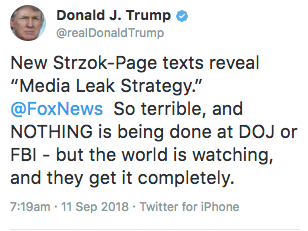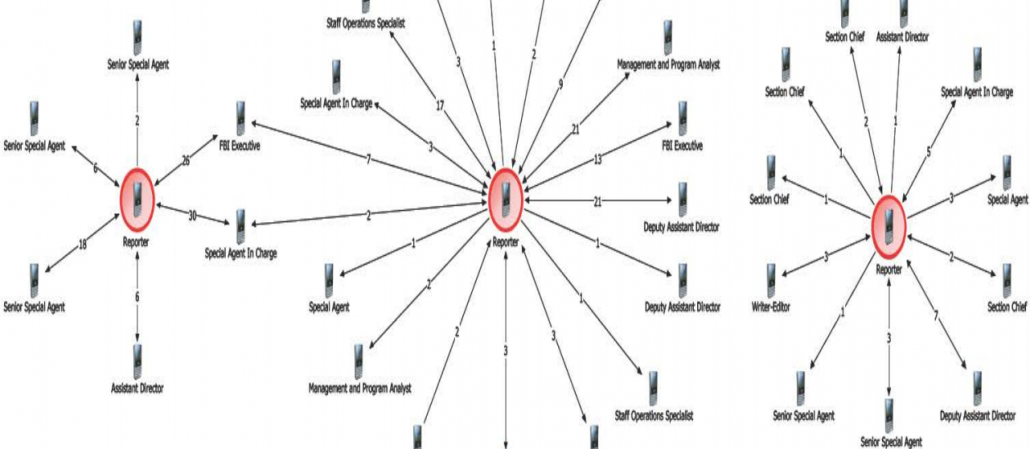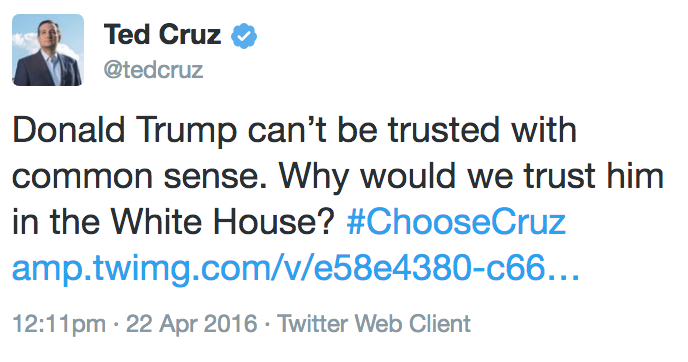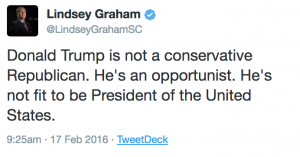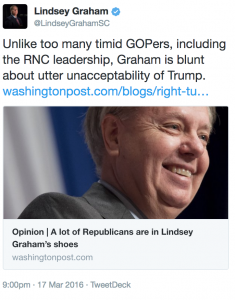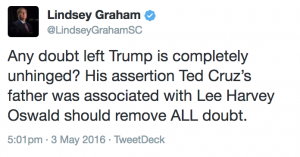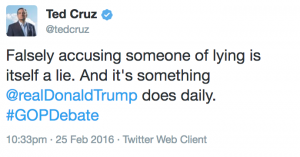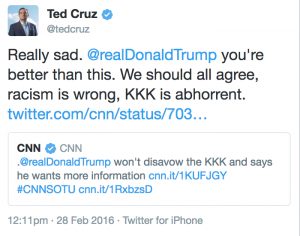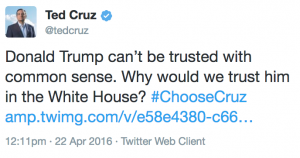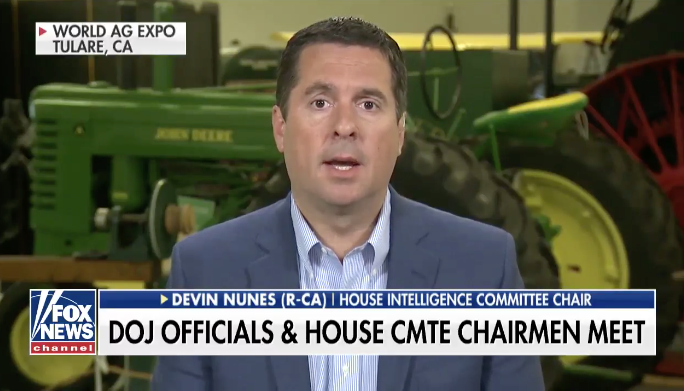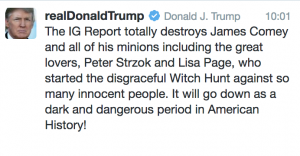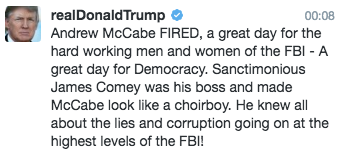The Frothy Right Is Furious that Peter Strzok Pursued the Guy Leaking about Carter Page
Close to midnight on June 3, 2017, Lisa Page texted Peter Strzok to let him know that Reality Winner was in custody. Page used the same shorthand she and Strzok (and presumably, those around them) consistently use to describe leak investigations, ML, media leaks.
They used the term elsewhere, as when Strzok said “media leaks and what I do for a living” when responding to the first reports that Mueller was investigating Trump (and hypothesizing about who the WaPo’s likely sources were).
Significantly, they used the term on April 10, 2017, when trying to figure out how to respond to DOJ’s effort to increasingly politicize leak investigations.
Indeed, Strzok’s lawyer has issued a statement confirming this is how Strzok and Page used the term.
The term ‘media leak strategy’ in Mr. Strzok’s text refers to a Department-wide initiative to detect and stop leaks to the media. The President and his enablers are once again peddling unfounded conspiracy theories to mislead the American People.
In spite of all that context, Mark Meadows has the entire frothy right, from Sara Carter to Fox News to Don Jr to his dad, worked up about two newly produced texts, based on this letter to Rod Rosenstein, which gets just about every thing wrong.
Before I explain how wrong Mark Meadows’ letter is, let me point out two things.
Michael Horowitz has already investigated a media leak text and found no misconduct
First, Michael Horowitz is (with the possible exception of DOD’s Glenn Fine) the best Inspector General in government. His office spent over a year investigating the work of Peter Strzok and Lisa Page; he wrote a 500-page report on it. And when he found evidence that even looked like impropriety, acted on it immediately and then formally, leading to Strzok’s firing. He has also spent a year investigating whatever calls went between FBI lines and reporters covering Hillary or Trump. He even drew pretty pictures showing each one of concern.
As part of both investigations, he examined a text in the series Meadows is concerned about (the April 10 one, above). And in spite of examining Page and Strzok, including a relevant text, at such length, Horowitz found no impropriety with the discussions about how to investigate leaks to the media.
We know the likely culprit for the leak the frothy right is blaming on Page and Strzok
The punchline of Meadows’ letter — as fed via the always-wrong Sara Carter — is a claim that Strzok and Page were the source for the WaPo story revealing that FBI obtained a FISA order on Carter Page.
The review of the documents suggests that the FBI and DOJ coordinated efforts to get information to the press that would potentially be “harmful to President Trump’s administration.” Those leaks pertained to information regarding the Foreign Intelligence Surveillance Court warrant used to spy on short-term campaign volunteer Carter Page.
Aside from how fucking stupid you’d have to be to believe that Strzok would go to great lengths to get a FISA order on Page and then tell the entire world about it, there’s another reason that the frothy right should know this is wrong: because we know the likely culprit for it.
As I noted in my first post on the James Wolfe indictment, that investigation appears to have started to (and focused on) finding the source for the WaPo story the frothy right now blames on Strzok and Page.
The government lays out clear proof Wolfe lied about conversations with three reporters. With Watkins and another, they point to stories about Carter Page to do so. The Watkins story is this one, confirming he is the person identified in the Evgeny Buryakov indictment. Another must be one of two stories revealing Page was subpoenaed for testimony by the Senate Intelligence Committee — either this one or this one.
I’m most interested, however, in this reference to a story the FBI raised with Wolfe in its interview, a story for which (unlike the others) the indictment never confirms whether Wolfe is the source.
During the interview, FBI agents showed WOLFE a copy of a news article authored by three reporters, including REPORTER #1, about an individual (referred to herein as “MALE-l), that contained classified information that had been provided to the SSCI by the Executive Branch for official purposes
The story suggests they don’t have content for the communications between Wolfe and Reporter #1, and the call records they’re interested in ended last June (meaning the story must precede it).
For example, between in or around December 2015 and in or around June 2017, WOLFE and REPORTER #1 communicated at least five times using his SSCI email account.
For that reason, I suspect this is the story they asked about — whether Wolfe is a source for the original credible story on Carter Page’s FISA order. The focus on Page generally in the indictment suggests this investigation started as an investigation into who leaked the fact that Page had been targeted under FISA, and continued to look at the stories that revealed classified details about the investigative focus on him (stories which he rightly complained to SSCI about).
The government didn’t charge Wolfe for that story — they just (appear to have) included his lies about whether he knew the reporters behind it among the lies they charged him for. But that’s a common strategy for FBI when dealing with a leak investigation the direct prosecution of which would require declassifying information, particularly with someone like Wolfe who could easily graymail the government. Moreover, the docket in his case has the look of one where the defense is considering a plea to avoid more serious charges.
Now consider how they got Wolfe. Not only did the government go after a trusted employee, not only did they very publicly access his Signal and WhatsApp texts, not only did they get Congress to waive speech and debate (which very rarely happens), but they also obtained years of Ali Watkins’ call records, both directly and via Temple University.
In other words, the prosecution of James Wolfe pushed prior protocols on leak investigations on a number of fronts: going after favored insiders, going after encrypted comms, going after employees of Congress, and going far more aggressively after a journalist and a college student than would seem necessary. That’s precisely the kind of thing that FBI and DOJ would debate as part of revising their strategy to more aggressively pursue media leaks.
So the James Wolfe case not only provides a likely culprit for the leak, but probably even evidence that shifts in the media leak strategy did happen, shifts resulting in far more aggressive pursuit of leaks than happened at the end of the Obama Administration.
Mark Meadows dangerously wrong
Which brings us, finally, to the many errors of Mark Meadows’ letter to Rosenstein. Once again, the premise of the letter is that two next texts (one of which obviously relates the one I posted above) create grave new concerns.
As you may know, we recently received a new production of documents from the Department providing greater insight into FBI and DOJ activity during the 2016 election and the early stages of the Trump administration. Our review of these new documents raises grave concerns regarding an apparent systemic culture of media leaking by high-ranking officials at the FBI and DOJ related to ongoing investigations.
Review of these new documents suggests a coordinated effort on the part of the FBI and DOJ to release information in the public domain potentially harmful to President Donald Trump’s administration. For example, the following text exchange should lead a reasonable person to question whether there was a since desire to investigate wrongdoing or to place derogatory information in the media to justify a continued probe.
April 10, 2017: Peter Strozk [sic] contacts Lisa Page to discuss a “media leak strategy.” Specifically, the text says: “I had literally just gone to find this phone to tell you I want to talk to you about media leak strategy with DOJ before you go.”
April 12, 2017: Peter Strozk [sic] congratulates Lisa Page on a job well done while referring to two derogatory articles about Carter Page. In the text, Strzok warns Page two articles are coming out, one which his “worse” than the other about Lisa’s “namesake.” [see update below] Strzok added: “Well done, Page.”
Meadows goes on to cite the WaPo story revealing Page’s FISA order and Andrew Weissman’s meeting with the AP (in which, per court testimony from the Manafort trial, the AP provided information useful to the investigation into Manafort, but which — significantly — led to the warrant on Manafort’s condo which may have led to the discovery of information that implicates Trump).
Meadows is just wrong. Both texts he already has and the Wolfe case “should lead a reasonable person” to understand that the same people who had long pursued leak investigations still were doing so, doing so in an increasingly politicized environment, but doing so with results that would employ more aggressive techniques and would find the likely culprit behind the WaPo story in question (not to mention send Reality Winner to prison for five years).
But all that’s just a premise to claim that because he imagines, fancifully, that Page and Strzok were leaking about ongoing investigations to the press (when in fact they were investigating such leaks), he should be able to get the FBI to talk about ongoing investigations.
During our interviews with Peter Strozk [sic] and Lisa Page, FBI attorneys consistently suggested witnesses could not answer questions due to the US Attorneys’ Manual’s policy for ongoing investigations. However, documents strongly suggest that these same witnesses discussed the ongoing investigations multiple times with individuals outside of the investigative team on a regular basis.
Not only is Meadows almost certainly wrong in his accusations against Strzok and Page, but he’s also ignoring that there are two ongoing investigations being protected here — both the general Russian investigation, but also the prosecution of Wolfe for behavior that likely includes the story he’s bitching about.
Meadows then uses what he even seems to admit are authorized media contacts as a transition paragraph.
Our task force continues to receive troubling evidence that the practice of coordinated media interactions continues to exist within the DOJ and FBI. While this activity may be authorized and not part of the inappropriate behavior highlighted above, it fails to advance the private march to justice, and as such, warrants your attention to end this practice.
The transition paragraph — which I’ll return to — leads to the whole point of the letter, Meadows’ demand that, because he has trumped up a false accusation against Strzok and Page, he should be able to interview FBI agents he believes will undermine the investigation into Donald Trump.
In light of the new information, our task force is requesting to review text messages, emails, and written communication from FBI and DOJ officials Stu Evans, Mike Kortan, and Joe Pientka between June 2016 to June 2017. To be clear, we are not suggesting wrongdoing on the part of Evans, Kortan, and Pientka–and, in fact, previously reviewed documents suggest that some of these individuals may share the committees’ same concerns. However, these additional documents, with an emphasis on communications between the aforementioned individuals and Peter Strozk [sic], Andrew McCabe, Lisa Page, Bruce Ohr and Andrew Weissman, would provide critical insight into the backdrop of the Russian investigation.
Meadows is looking, among other things, testimony that says Pientka didn’t believe Mike Flynn lied when he interviewed Trump’s National Security Advisor with Strzok. But he’s doing so specifically for a time period that ends before the evidence showing that Flynn did lie came into FBI (in part, when Mueller obtained Transition emails showing Trump closely directed Flynn’s conversations with Sergei Kislyak.
Now back to authorized media interactions. I happen to know something about how they work. I had a conversation with the FBI that pertained, in part, to whether there was a tie between Russian criminals and the President, one that also pertained to my perception of possible threats. Apparently Meadows thinks that such a conversation “fails to advance the private march to justice,” though it’s not clear what he means by that. I mean, thus far, I have been very circumspect about the content of such conversations; is Meadows really asking me to air details before the midterms? I have thus far hesitated to share suspicions I had, believing it would be inappropriate for anyone besides Mueller and the FBI to air such things publicly, until they had corroborated my suspicions. But Meadows apparently believes it important to air investigative details before the election.
The better option — one that would put the rule of law and the security of the nation ahead of partisan obstruction — would be for Meadows to stop inciting hoaxes among the frothy right. Or maybe, at least, the frothy right can recognize that Meadows has serially embarrassed them as they credulously repeat whatever hoax he floats?
Update: After Jerrold Nadler and Elijah Cummings released a response noting some of Meadows’ errors, he fixed just one of the errors in his letter, admitting that the “well done, Page” language was actually from an April 22, 2017 text that reads, “article is out! Well done, Page,” and which obviously refers to this story on Jim Comey.
As I disclosed July, I provided information to the FBI on issues related to the Mueller investigation, so I’m going to include disclosure statements on Mueller investigation posts from here on out. I will include the disclosure whether or not the stuff I shared with the FBI pertains to the subject of the post.





